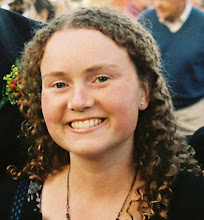Yesterday, as the rain was pouring down and the tornado sirens were blaring, I sprinted through the rain into the theater to watch The Soloist—a movie about the relationship between Steve Lopez, a journalist, and Nathanael Ayers, a homeless man with schizophrenia who was once a student at Julliard.
After emerging from the Warren, still damp from the drenching I got on the way in, I reflected on how much I appreciated the movie. It does not trivialize mental illness; it does not make fun of its protagonist, as do so many depictions of the mentally ill. It was a touching tribute to the relationship between these two men. That’s why I was so surprised at some of the reviews of it I have since read. The film was not brilliant, I suppose, but I don’t think it deserves many of these criticisms.
The criticism that perplexed me the most was that the film is not realistic. I suppose that is true, in some respects. Perhaps not all of the characters were completely developed; perhaps the imaginary orchestra that begins playing whenever Ayers lifts his bow is a bit over the top. On another level, though, the filmmakers got it exactly right.
For those of you who have experienced mental illness or have loved someone struggling with mental illness, I recommend this film because it illustrates some of our pain, fear, and joy. For those of you who have not been affected by mental illness (or, at least, not yet), I recommend this film because it may help you to catch a glimpse into our world.
It captures the frustration and pain of feeling deep mental anguish while surrounded by those who cannot see that anything is wrong. It captures the struggle of caring for someone who doesn’t always want help, who doesn’t always recognize that they need help. It captures the confusion of caretakers trying to decide how hard to push for a treatment that is unwanted. It captures some of the societal issues that have contributed to the problem of mental illness—homelessness, overly strict (in my opinion) laws about patient consent. It also captures some of the joy when those we care about are well enough to accept—and to give—love.
Some say the film fails because it tries to do too much—that it can’t work out all of the complications brought in by having a homeless hero with schizophrenia who also happens to be a brilliant musician. This is one of the things that I like about it. It’s messy, and so is mental illness. If it tied the story up in a nice little package, it might leave viewers happier, but it wouldn’t be true. It doesn’t try to pretend like Ayers is suddenly healed because someone cares for him; it doesn’t pretend like the progress he’s made is irreversible. It rejoices in his happiness, precarious as it is, all the while reminding us that people aren’t just cured from mental disorders, that relapse is always a terrifying possibility.
Most of these reviews I disagreed with, but only one made me truly angry. This reviewer complained that we are given no explanation for why Nathaniel Ayers developed schizophrenia—a complaint that, to me, reveals how very little its author knows about mental illness. I, too wish I had some explanations, but they aren’t forthcoming. No film director can simply explain away mental illness.
Those of us who have seen mental illness up close and personal often wish that we had an explanation. We think up lots of them—genes, parents, friendships (or the lack thereof), poor eating habits—the list never ends. But we never really find the answer. We narrow it down to our best guesses, and we know that genetics and environment both play a part, but we can never know for sure if a different set of circumstances might have led to a different result.
And we never stop wishing. Even when we see that good has come from all the pain, we can’t help hoping that, in the future, good will choose an easier path.
I hope that the next time I visit the Warren, it won’t be in the midst of a tornado warning and that I won’t be dripping by the time I enter through the door. Even if those circumstances repeat themselves, though, I’d be happy to run through the rain again as long as I find another movie like The Soloist inside.
Thomas and the motorcycle
10 years ago
